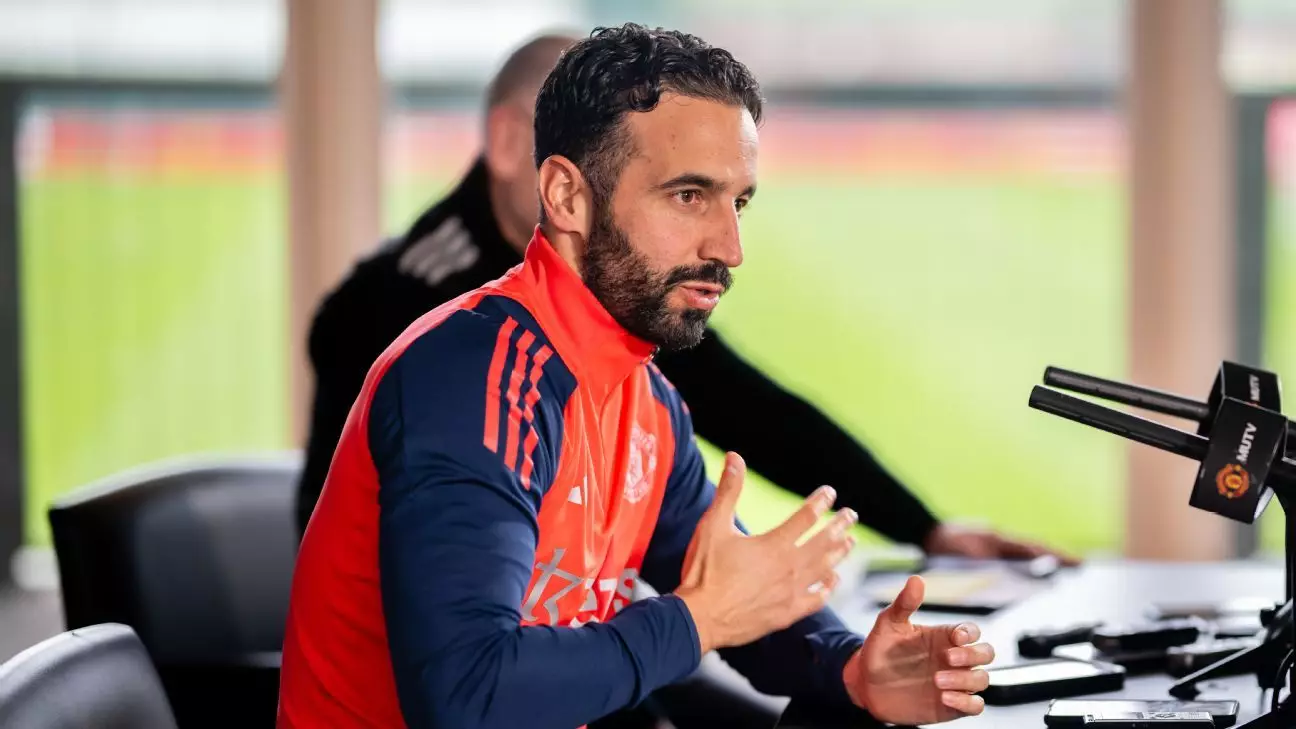Rúben Amorim, recently appointed head coach of Manchester United, is stepping into a significant role that intertwines collaboration and a degree of hierarchical tension regarding player transfers. The seasoned tactician comes from Sporting CP, where he gained recognition for his managerial acumen and ability to develop young talent. This transition to the iconic club signals not only his professional growth but also Manchester United’s commitment to a revised operational structure designed for success.
While Amorim was given the title of head coach rather than manager, this distinction highlights an evolution in how football clubs operate today. The introduction of sporting director Dan Ashworth and technical director Jason Wilcox aims to streamline recruitment processes, yet it raises questions about the extent of Amorim’s influence on player selections. Although it’s understood that he will have a voice in recruitment, the reins will primarily be held by Ashworth and Wilcox, suggesting a collective approach rather than a dominating individual vision.
Amorim’s insistence on having “the final say” in recruitment reflects the significant challenge he faces in restoring a winning mentality at Old Trafford. His recent statements underline the importance of a unified approach in player acquisitions and departures, emphasizing that a collaborative effort is indispensable for identifying players who align with the ethos and style of Manchester United.
This collaborative framework may, however, dilute the overall accountability traditionally held by the head coach. When he stated, “the final word should be the manager,” Amorim was laying out a crucial perspective that, despite involving others in decision-making, the head coach must ultimately be responsible for the squad’s composition. This sentiment is rooted in the understanding that the success or failure of the team will inevitably reflect upon him, thus making it essential for him to have a decisive role in recruitment.
Arriving at a club currently languishing at 13th in the Premier League table poses its own set of challenges. Amorim’s acknowledgment of the players’ loss of confidence provides insight into the psychological hurdles that may have built up under his predecessor, Erik ten Hag. This candid appraisal indicates a deeper understanding of the mental aspects of the game that go beyond simply developing tactics and strategies.
Amorim’s focus on restoring belief in the players reaffirms his commitment to fostering a nurturing environment. He recognizes the natural psychological cycle that teams experience: confidence ebbs and flows based on results. His proactive approach aims to instill a renewed sense of faith among the squad members, essential for any team’s long-term aspirations.
The Premier League is known for its unyielding demands, where physical endurance and strategic dynamism are non-negotiable. Amorim’s assessment that his players possess the capability to meet these challenges is both optimistic and realistic. This season’s fluctuations, evident in their gameplay where they frequently rally in the second half, illustrate the potential within the squad—a trait that promises hope if harnessed correctly.
The urge to have the players re-engage with their tactical training and belief systems will be a transformative process. Amorim’s strategy should not only focus on the immediate results but also aim to cultivate resilience for facing future adversities. His acknowledgment that improving morale takes time reflects an understanding that psychological recovery is as essential as tactical adjustment.
Rúben Amorim’s arrival at Manchester United marks a pivotal moment, underlined by a commitment to reconstructing the team’s ethos through collaboration, responsibility, and psychological revitalization. The integration of a structured recruitment process involving key figures in management contrasts with the traditional view of a singular manager wielding omnipotent authority. This approach may herald a refreshing chapter for Manchester United, one that embraces adaptation while holding true to the foundational principles that once made the club a powerhouse in football. As Amorim embarks on this journey, the eyes of supporters, players, and the entire footballing world will be keenly observing how the dynamics of unity and accountability unfold on the pitch.


Leave a Reply